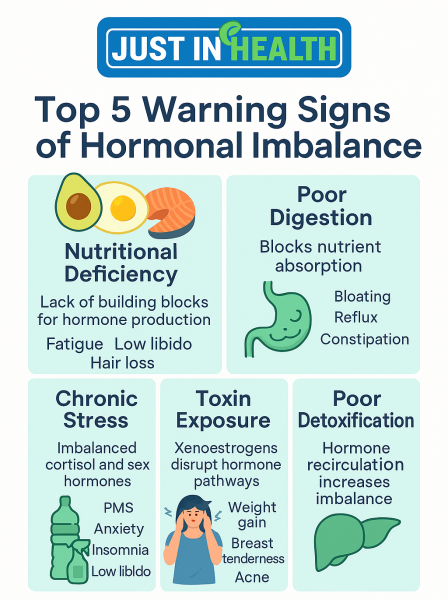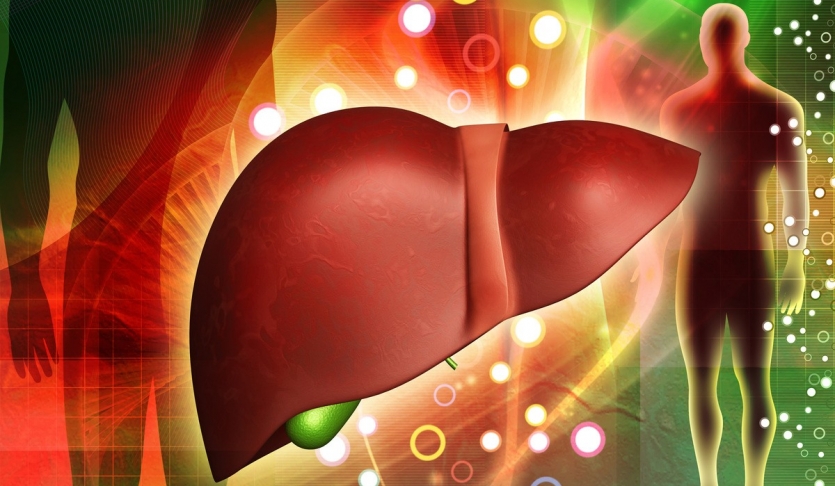

Hormones control nearly every aspect of physical and emotional health—mood, energy, weight, sleep, fertility, and more. When hormones are out of balance, your body sends signals. Unfortunately, many people dismiss these early symptoms until they escalate into serious issues like infertility, fatigue, PCOS, or thyroid dysfunction.
Functional medicine takes a root-cause approach to hormonal imbalance. Instead of masking symptoms with synthetic hormones, we identify what's disrupting your natural rhythm—and help your body restore balance from within.
Your hormones are made from cholesterol, protein, and essential nutrients. Without these building blocks, your body simply can’t make enough hormones.
Fatigue
Low libido
Irregular cycles
Dry skin or thinning hair
Focus on nutrient-dense, anti-inflammatory foods
Include high-quality animal proteins and healthy fats (e.g., grass-fed beef, eggs, salmon, organ meats)
Avoid refined sugars, processed oils, and packaged foods
Steroid hormones (like estrogen, progesterone, and testosterone) are made from cholesterol, while peptide hormones (like insulin and growth hormone) require amino acids. While well-intentioned, vegan or vegetarian diets often lack these foundational nutrients unless very carefully planned.

Even if you eat well, you won’t reap the benefits if you don’t digest properly. Your gut is the gateway to hormonal health.
Bloating
Constipation or loose stools
Acid reflux
Nutrient deficiencies (B12, iron, zinc)
If your digestive system is inflamed or sluggish, your body can’t extract and absorb the vitamins, minerals, fats, and amino acids needed for hormone synthesis.
Use digestive enzymes, HCl (stomach acid), or bitters with meals
Test for gut infections, dysbiosis, or leaky gut using a GI-MAP stool test
Eat in a relaxed state to activate your parasympathetic “rest-and-digest” system

Emotional and physical stress hijack hormones. Chronic stress raises cortisol, draining the body's supply of progesterone, disrupting estrogen/testosterone ratios, and increasing aromatase activity (which converts testosterone to estrogen).
Anxiety or depression
Poor sleep
PMS, heavy cycles, breast tenderness
Low libido or erectile dysfunction
Midsection weight gain
When your stress is unrelenting, cortisol becomes dominant. In women, this often leads to progesterone deficiency and estrogen dominance. In men, it may lead to high estrogen, low testosterone, and loss of lean muscle.
Use adaptogenic herbs like ashwagandha, rhodiola, and holy basil
Practice deep breathing, meditation, or yoga
Support adrenal function with B vitamins, magnesium, and vitamin C

Xenoestrogens are foreign, synthetic compounds that mimic estrogen in the body. These endocrine-disrupting chemicals overload estrogen pathways and contribute to hormonal chaos.
Plastic containers and food packaging
Pesticides, herbicides, and mold toxins
Tap water with hormone or chemical runoff
Conventional cosmetics and cleaning supplies
Switch to glass or stainless steel for food and drink storage
Filter your water (reverse osmosis preferred)
Eat organic to avoid glyphosate and chemical residues
Detox your home with natural cleaning and beauty products

Your liver and gut are responsible for breaking down and eliminating excess hormones. If detox pathways are sluggish, your body may reabsorb estrogen, worsening imbalance symptoms.
Breast tenderness
Cyclical migraines
Heavy or painful periods
Acne and PMS
Hormonal weight gain
Eat foods rich in sulfur (garlic, onions, cruciferous veggies)
Use glutathione, N-acetyl cysteine (NAC), and B-complex to support liver pathways
Ensure daily bowel movements (fiber, magnesium citrate)
Support phase 2 liver detox (methylation, glucuronidation, sulfation)

To truly understand what’s going on beneath the surface, functional lab testing is essential. These tests help you understand your cortisol rhythm, estrogen/progesterone balance, detox ability, and more.
DUTCH Complete Test: Urine hormone test that assesses cortisol rhythm, estrogen, progesterone, DHEA, and melatonin
GI-MAP Stool Test: Evaluates gut inflammation, pathogens, and the microbiome’s impact on hormone metabolism
Organic Acids Test (OAT): Reveals B-vitamin levels, neurotransmitter breakdown, mitochondrial function, and detox pathways
Blood Chemistry Panel: Checks thyroid hormones, insulin, fasting glucose, vitamin D, ferritin, and more
👉 Ready to take action? Click here to schedule your free consultation.
| Root Cause | Why It Matters | Red Flags |
|---|---|---|
| Nutritional Deficiency | Lack of building blocks for hormone production | Fatigue, low libido, hair loss |
| Poor Digestion | Blocks nutrient absorption | Bloating, reflux, constipation |
| Chronic Stress | Imbalanced cortisol and sex hormones | PMS, anxiety, insomnia, low libido |
| Toxin Exposure | Xenoestrogens disrupt hormone pathways | Weight gain, breast tenderness, acne |
| Poor Detoxification | Hormone recirculation increases the imbalance | Heavy periods, irritability, PMS |
References
If you're experiencing any of these symptoms and want to identify the root cause, don’t wait. A personalized approach to hormone health can transform your life.
👉 Book your free consult with Dr. Justin Marchegiani today.
====================
Recommended Products